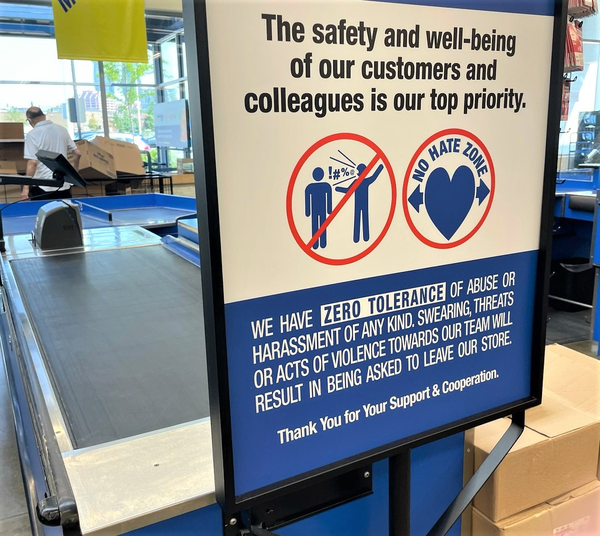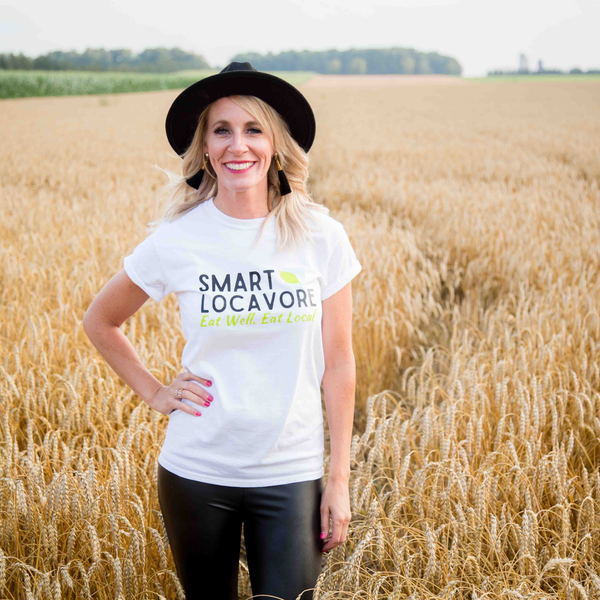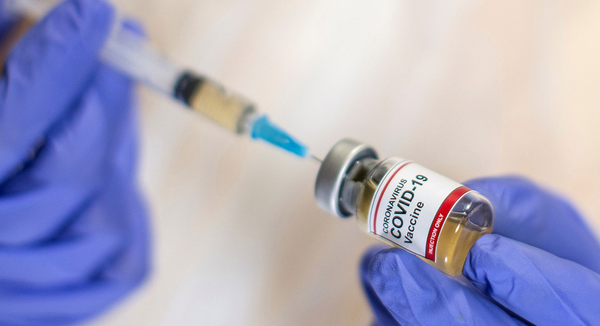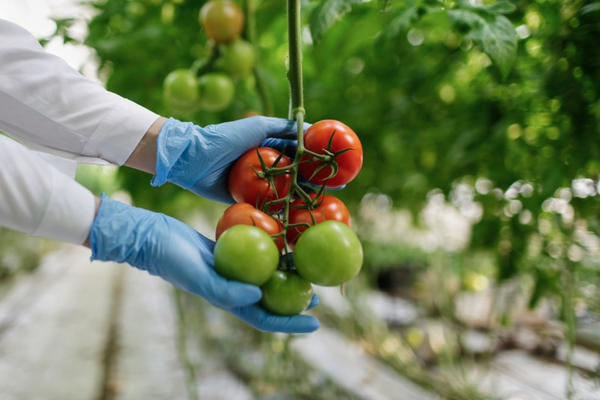Volume 1 - Issue 1 - August 2021
farmfreshontario.com |
|
|  |
Dear Subscriber,
Welcome to Horizons, the first edition of Farm Fresh Ontario's e-newsletter!
The term horizons is to signify the far off land and opportunities sailors would search for during the age of sail. We hope this newsletter helps guide you to new opportunities just over the “horizon”.
For more than thirty years the newsletter provided our subscribers with news and updates, as well as tips for running a farm businesses. With this new format we will endeavour to provide you with quality content on a monthly basis that serves to help your business grow, become more familiar with your fellow members, keep you up-to-date on regulations and industry trends, as well as upcoming Farm Fresh Ontario news and events in a faster and more interactive way.
It's been a very busy spring and summer for Farm Fresh Ontario. We've launched our new brand including our new website. We've also been focusing on our government relations to further promote our industry's current needs, challenges and opportunities. Communication with key MPPs have taken place as we strive to make sure that FFO and its members are top-of-mind with government officials. We also just Interviewed with CBC The National and 640 News Talk radio about the current labour shortage.
We've implemented a new client management software (CMS) system that will make registering your membership much simpler, and allow us to deliver our newsletter electronically. This new CMS will also allow us to manage and promote FFO special events.
In the coming weeks you will be hearing more details about our fall bus tour and our AGM being held in February in Niagara Falls. Fingers crossed that we can have an in-person AGM so we can once again meet and greet each other!
Yours truly,
Thomas Wilson President, Farm Fresh Ontario Board of Directors |
|
|
|
| Helping staff deal with customer service pressures |
|  |
If it’s one thing the COVID-19 pandemic has done is create a prescription for a stressed-out workforce, particularly in the hospitality, tourism, and restaurant industries. Pretty much any sector that involves customer service.
Many of FFO members have witnessed it first-hand; a public that is eager to get out of the house and experience life once again, a labour shortage that is causing hiring issues for business owners, and a society where it seems people have lost all patience in this in-demand world we live in. The stress that staff are feeling, either from not enough help due to staff shortages or demanding and sometimes abusive customers has led to resignations further impacting the already dire labour shortage.
Farm Fresh Ontario spoke with business consultant Angela Leach to get her take on this important issue. Leach said that first-off, it’s important took look at the overall positive which is the agricultural sector is hopping. “People are visiting farms now more than ever and the respect for farmers growing local produce has probably never been higher as Ontario residents quickly realized the important role local farms play on many fronts.”
She does note that there have always been “grumpy customers” and always will be and that given the factors mentioned above it could very well be exacerbated during this unique time. People are stressed. Businesses owners are stressed, and staff are stressed. “There are things that you can control as a business owner and that’s what you need to focus on,” said Leach.
Leach said a key factor is letting staff now at the start of the day or shift what Plan B is. “Whether it’s because you are short staffed, out of a product or something else, you need to let staff know you have a Plan B.” She added, it’s important to be upfront with customers too. “Let them know you are very busy and maybe short staffed and that you are working very hard to provide them with great customer service.” Leach added, “you still have to strive to give them the best customer experience. That’s the ultimate goal.”
However, sometimes that effort isn’t good enough for everyone and some FFO members have witnessed first hand the abusive language and bullying attitudes of customers when things don’t go exactly their way. Some businesses have started posting signs like the one seen in this article, have had to “fire customers” or comfort and support staff who’ve unfairly been the target of such inappropriate behaviour.
“Everyone is struggling to find good staff and this issue will be with us for a while,” explained Leach. She said compensation is important (many businesses have been forced to offer signing bonuses) but creating the right corporate culture is also key. Being more proactive as opposed to constantly reacting to customers is also key, according to Leach. “People feel more stressed when they are being reactive. You need to ask yourself; What can we do to be more proactive? How do we limit the frustrations?”
“Figure out what the customer’s wants are before the become a need.” |
|
|
|
| Getting back to her roots with Smart Locavore |
|  |
New website helps consumers support Ontario farms directly
Stacey Bowles did a 180 degree turn that has taken her back to her farming roots.
After spending a decade in the purchasing department at Wilfred Laurier University, Bowles had a brain wave, as she describes it, during the beginning stages of the COVID-19 pandemic. A self-described born and raised farm girl, Bowles grew up on a 300-acre beef farm just outside of Listowel. Her parents still farm there today.
It was back in 2020 and the early stages of the global pandemic that began to lock down the province and the world when Bowles noticed that people were looking to buy more locally grown and produced food. “People wanted to support local, but they weren’t always sure of where to buy certain items,” explained Bowles. “I want to give Ontario farmers more visibility, more direct sales and give consumers an easier option to find and buy local.”
Bowles reached out to several farmers and pitched her idea. She asked if they would be interested and if this was needed. “The overwhelming answer was yes,” she said. So, in the fall of 2020 Bowles sat down and built the first version of her website and launched what is now known as Smart Locavore. The website smartlocavore.com was redesigned in 2021 to make it cleaner and easier to navigate and just seven months in it has more than 1,000 listings.
The idea is to always have the site free for farmers to list their items and drive revenue through advertising. Farmers from all over Ontario are participating. “If you are heading to the cottage you can go on the site and find the farm that is selling fresh vegetables that’s on your route,” explained Bowles. She said the site works similar to Kijiji. “I see the transactions happening every day, so I know it’s working.”
Her end game is to make this a dedicated platform throughout North America giving the public another opportunity to buy directly from farmers.
“The feedback has been incredibly positive. It’s given me hope and motivation.” |
|
|
|
| COVID-19 and the workplace: What's the latest? |
|  |
New Rules for The Haves and the Have Nots That Every Employer Needs to
Under the Supporting Ontario’s Recovery ActOntario workers, employers, volunteers, non-profits and other organizations who make an “honest effort” to follow public health advice, public health guidance and the applicable laws are protected from liability, including vicarious liability which is important to employers, in the event of transmission to third parties. As such, staying abreast of current developments is key for employers wishing to take advantage of such protection from liability as they are attempting to return to operating their businesses. Yesterday, in response to the delta variant that is driving the fourth wave of COVID-19, the Ontario government released new guidelines around testing and self-isolation for those who might be exposed to the virus — with the rules dependent on vaccination status. Particularly, the Haves (with the full vaccine – that is 2 doses) will be subject to fewer restrictions and more lenient isolation requirements compared to the Have Nots.
What are the New Rules? The Haves who are asymptomatic and exposed to a confirmed case are “likely” (depending on their specific public health unit) not required to self-isolate, but should get tested; they should self-monitor for any symptoms for 10 days, as well as follow public health measures like wearing masks outside their home. A Have Not must self-isolate for 10 days and immediately get tested. If a Have is exposed to a confirmed case and does develop symptoms, they are instructed to self-isolate and get tested right away. If that test comes back positive, they must self-isolate for 10 days. If the test is negative, they can stop self-isolating once those symptoms have improved for at least a day, or two days for gastrointestinal symptoms. The Haves in this category who are members of the same household don't need to self-isolate if they've been vaccinated however the Have Nots in this category would need to self-isolate until the exposed person gets a negative test result. If a Have Not comes into contact with a confirmed case, the rules are different. The Have Nots must self-isolate for 10 days and immediately get tested. If the test is negative, a second test is recommended on or after day seven of that self-isolation period. Moreover, a Have Not in this category must self-isolate for this period following their last exposure, even if they test negative. If a Have Not who has been exposed has no symptoms, fully-immunized household members don't need to self- isolate – however, if they aren't vaccinated, the household member should stay home except for "essential reasons" like work or school during the exposed person's isolation period (a concern for many employers).
Where a Have Not is exposed and does have symptoms, they must be improving for at least a day or 2 where gastrointestinal symptoms before isolation can end. Have household members in this situation don't have to self-isolate, but Have Nots who don't have their shots should self-isolate while the exposed person is awaiting test results, then stay home except for essential reasons during the exposed person's isolation period. To assist with understanding these rules the province has laid these guidelines for what people should do if they are exposed to someone who has tested positive for COVID-19 in a flowchart broken down by vaccinated and unvaccinated: Appendix 11 High Risk Contact Flow Chart (documentcloud.org). It is recommended that you post, email or otherwise distribute this chart to your employees, be available to answer questions on its application, and provide training on it. Communication and training are key to reducing the spread and reducing potential liability.
What does this mean to your workplace? Again, this is an honour system that makes workplace policies concerning these rules as well as training and communication on such policies critical. Why is this? During a public health crisis, privacy laws still apply however they are not a barrier to appropriate information sharing. In Ontario we do not have specific provincial privacy legislation concerning the collection, use, and disclosure of employee personal information generally; we do have Ontario's Personal Health Information Privacy for the Health Sector. This lack of privacy legislation generally does not mean that employers do not need to be concerned with protecting employee privacy or face potential liability (not covered the Supporting Ontario’s Recovery Act).
As such, employers must be mindful that a COVID-19 diagnosis is private health information as is vaccination status – so far given that there is no vaccination passport in Ontario, and an individual employee’s privacy must be maintained whenever possible.
At the same time, under OHSA employers have an obligation to take reasonable steps to provide a safe workplace for their employees. Layered on top of this is tracking obligations where there has been an exposure or potential exposure.
Therefore, assessing the appropriate use and disclosure of such employee personal health information must involve the balancing of individual employee privacy rights with the employer’s obligation to protect its workplace. Best practices are to:
- Get consent to disclosure where possible;
- Have clear, communicated policies in place, including consequences for breaching. Both the policies and the reasons for them should be clearly communicated to employees so they understand not only the importance of the policy and why it is in place, but also their obligations under it.
- Provide training on and reminder about employees’ obligations under such policies; and
- Consistently and fairly apply such policies, including the consequences for breach.
About the Author: Sheryl L. Johnson is a partner with Sullivan Mahoney LLP and is a member of our Employment and Labour Law Group. |
|
|
|
| Ontario Invests in Agri-Food research sector |
|  |
Research Advancements to Generate Innovative Solutions to Address Emerging Industry Issues
The Ontario government is investing $7 million into agri-food research projects that will support greater environmentally friendly agricultural practices, protect livestock health and welfare, and stimulate economic growth within the agri-food sector and Ontario’s rural communities.
- Evaluating the ability of natural buffer strips to reduce the impact of agricultural practices on freshwater ecosystems, protecting water quality and biodiversity;
- Studying the impact of using herbs instead of antibiotics to improve calf health, growth, and welfare;
- Assessing the capacity of communities to respond to rural and agricultural issues and identify best practices;
- Examining pests, diseases and weeds impacting Ontario crops, develop integrated pest management practices, and examine crop genetics to improve varieties and disease resistance;
- Addressing pathways of common illnesses to improve the health of young animals and evaluating probiotics and alternative control measures.
The funded research projects will generate new knowledge, train highly qualified personnel, and help maintain science capacity to address emerging issues facing the sector which in turn, will help grow the economy. |
|
|
|
| Governments Supporting Mental Health for Farming and Rural Communities |
|  |
Initiatives to Ensure Mental Health Supports for Rural and Agricultural Communities Unique Needs
The governments of Canada and Ontario are investing in new initiatives to support and promote mental health in Ontario’s farming and rural communities. These initiatives will improve the mental health services available to Ontario’s agricultural sector and help ensure farmers, their families and their employees have additional places to turn when help is needed.
Three initiatives will receive over $430,000 in funding as the governments continue to focus on ensuring farmers, agri-food workers, and rural communities have access to the mental health support they need. These projects will provide more data on farmer and rural mental health in Ontario to ensure available supports meet unique community needs.
“Many farmers and employees have faced great challenges through the pandemic, which only add to the stresses they may face every single day,” said the Honourable Marie-Claude Bibeau, federal Minister of Agriculture and Agri-Food. “Agricultural mental health programs, such as these, will give Ontario farmers and employees more tools to help them address their challenges. It’s important that farmers and workers know that they should never hesitate to reach out if they’re struggling with their mental health.”
“Owning and operating a farm can be very stressful. The combination of the unique challenges of farming with the additional stresses of COVID-19 have made mental health challenges for many in the farming and rural communities more difficult,” said Lisa Thompson, Minister of Agriculture, Food and Rural Affairs. “Thanks to mental health champions like Michael Tibollo, Associate Minister of Mental Health and Addictions, our government is investing in the well-being of farmers, farm families, farm workers and everyone living in rural communities and we’re building on current knowledge, supports and resources to help them address mental health challenges”.
The funding initiatives include: - Survey on farmer mental health and agricultural literacy of mental health professionals: Dr. Andria Jones-Bitton (Ontario Veterinary College, University of Guelph) will conduct a targeted survey to better understand the current state of farmers’ mental health in Ontario and Dr. Briana Hagan will consult with agricultural and mental health professionals to develop an agriculture literacy program and information for a mental health care audience. This project will help mental health care providers improve the delivery of mental health services to the farming community and tailor these services to the unique needs of the community.
- Community and workplace supports for the mental health of international agricultural workers in Ontario: Occupational Health Clinics for Ontario Workers (OHCOW) will research existing mental health services and supports that are tailored to needs of international agricultural workers employed on Ontario farms and recommend strategies to improve mental health and well-being services and psychosocial supports available to agri-food workers.
- Survey on mental health impacts of disruptive events in rural Ontario: Dr. Leith Deacon (School of Environmental Design and Rural Development, University of Guelph) will collect community data on challenges and experiences faced by vulnerable populations and highlight successful initiatives in rural communities to make recommendations on ways to support the development of appropriate response plans for COVID-19 and future disruptive events.
|
|
|
|
Editor: Kevin Vallier, Executive Director, Farm Fresh Ontario
What do you want to see in this newsletter? Do you have any news or stories to share? Please provide your feedback and suggestions to info@farmfreshontario.com |
|
|